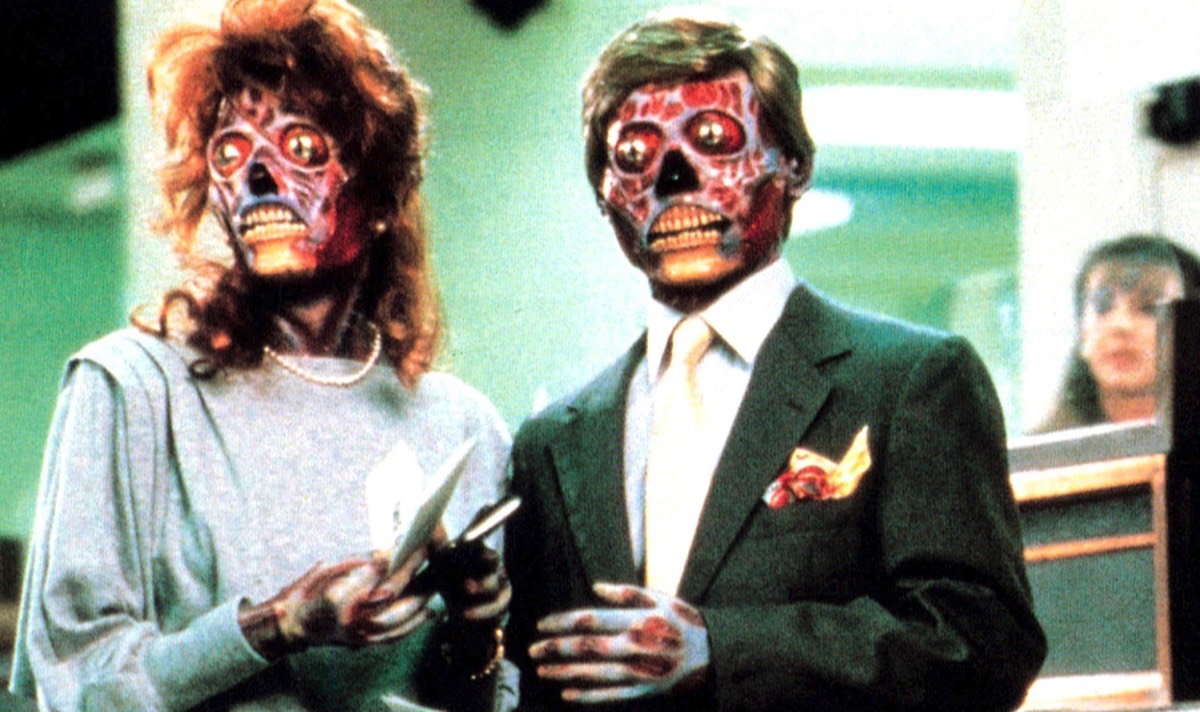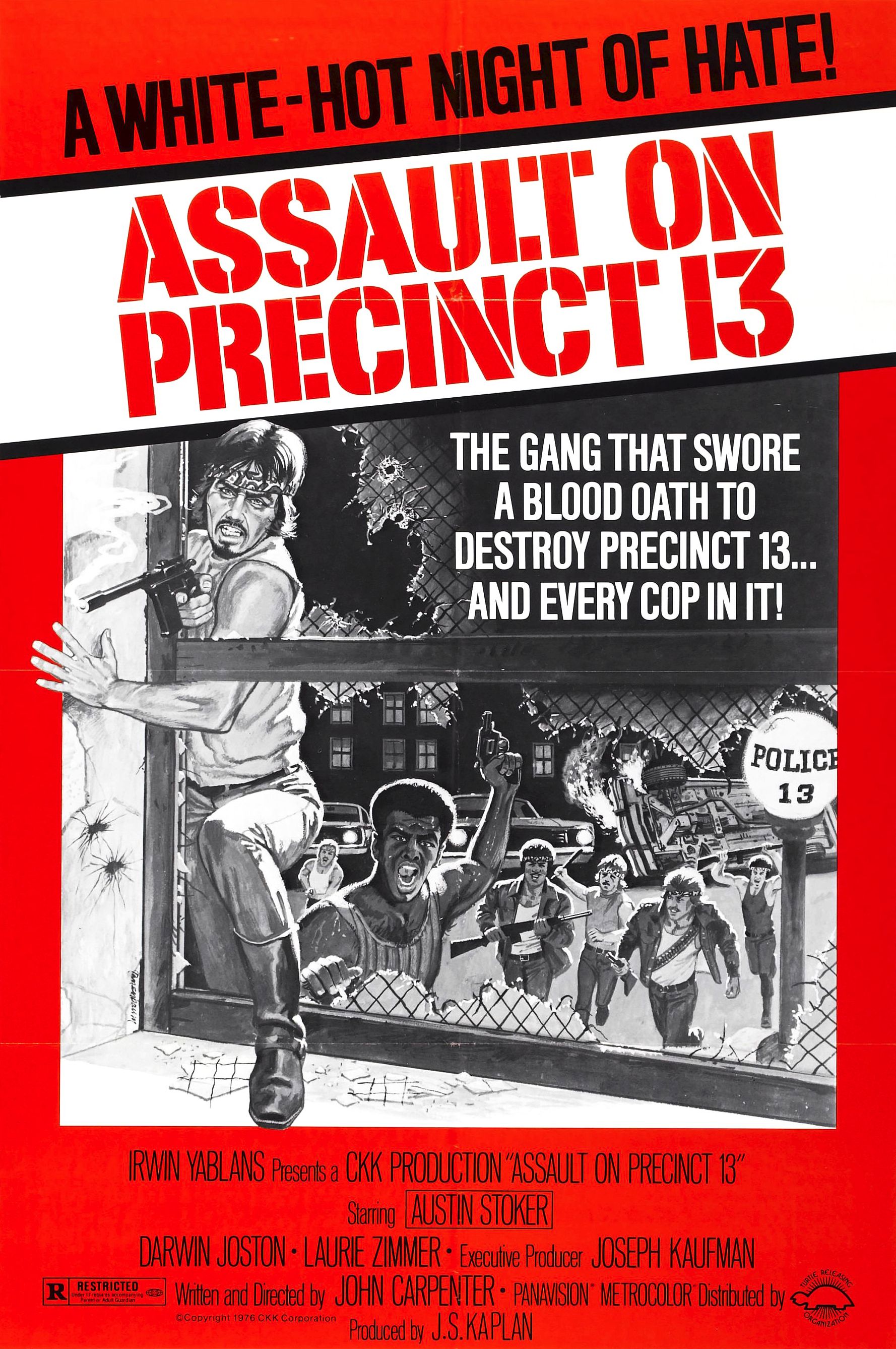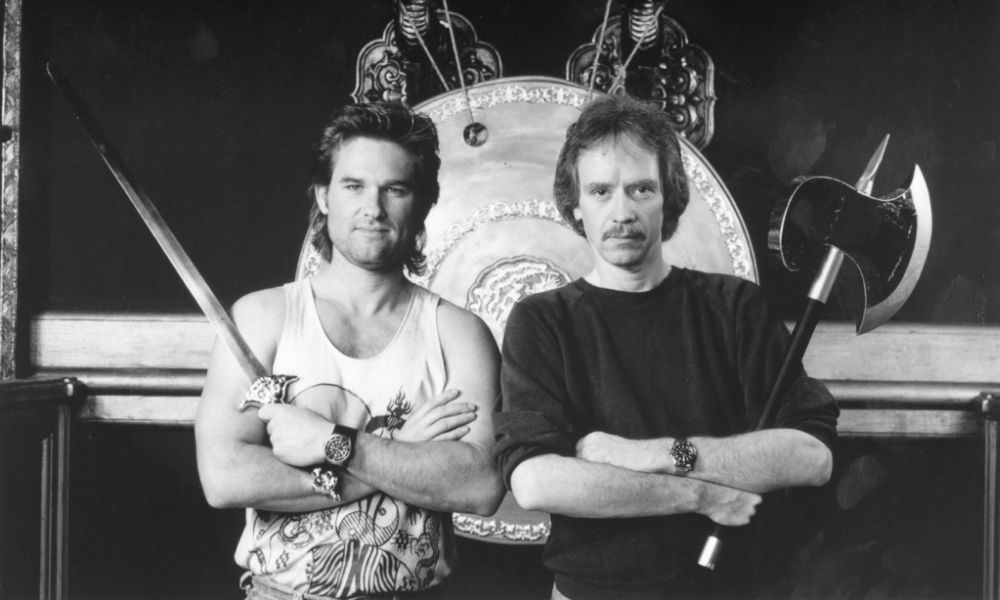"A writer-director best known for his vivid and ghoulish modern horror films, he has made a number of fine action and science fiction films, as well. If Brian De Palma is the heir to Alfred Hitchcock, then John Carpenter is the heir to Howard Hawks. Like Hawks, Carpenter shoots his movies with an 'invisible' style; the audience is rarely aware of the camera's presence or the editor's splices." - The Encyclopedia of Hollywood, 2004
John Carpenter
Director / Composer / Screenwriter
(1948- ) Born January 16, Carthage, New York, USA
Top 250 Directors
(1948- ) Born January 16, Carthage, New York, USA
Top 250 Directors
Key Production Country: USA
Key Genres: Horror, Science Fiction, Action, Supernatural Horror, Sci-Fi Action, Sci-Fi Horror, Escape Film, Comedy, Sci-Fi Comedy, Fantasy, Alien Film, Action Thriller
Key Collaborators: Gary B. Kibbe (Cinematographer), Kurt Russell (Leading Actor), Larry Franco (Producer), Dean Cundey (Cinematographer), Alan Howarth (Composer), Charles Cyphers (Character Actor), Sandy King (Producer), Debra Hill (Producer/Screenwriter), Daniel A. Lomino (Production Designer), Donald Pleasence (Leading Actor), Donald M. Morgan (Cinematographer), Marion Rothman (Editor)
Key Genres: Horror, Science Fiction, Action, Supernatural Horror, Sci-Fi Action, Sci-Fi Horror, Escape Film, Comedy, Sci-Fi Comedy, Fantasy, Alien Film, Action Thriller
Key Collaborators: Gary B. Kibbe (Cinematographer), Kurt Russell (Leading Actor), Larry Franco (Producer), Dean Cundey (Cinematographer), Alan Howarth (Composer), Charles Cyphers (Character Actor), Sandy King (Producer), Debra Hill (Producer/Screenwriter), Daniel A. Lomino (Production Designer), Donald Pleasence (Leading Actor), Donald M. Morgan (Cinematographer), Marion Rothman (Editor)
"It was with his third feature that Carpenter became established as one of Hollywood's most bankable directors. Produced on a shoestring budget of $300,000, his effectively executed horror movie Halloween grossed $60 million worldwide, thus becoming the most profitable independent production up to its day... Adept at generating suspense and narrative drive, Carpenter also uses horror and science fiction metaphorically to explore the dark side of modern American culture - personal isolation and distrust in The Thing, urban decay in Escape from New York, and mass communications in They Live. However, his films are often uneven in quality, sometimes over-shadowed by their own expensive special effects and the conventional demands of the genres in which they are placed." - The Macmillan International Film Encyclopedia, 1994
"Carpenter is a director who likes to get his audience on the edge of their seats, then make them jump off it. He continued to be mighty successful at it too, although in the early 1980s his films were insufficiently progressive - one longed for more variety in his work." - David Quinlan (Quinlan's Film Directors, 1999)

They Live (1988)
"In reviews of his later work, in particular, critics have dismissed John Carpenter's films as "mechanical" or "workmanlike". Yet his movies have rarely pretended to be anything more or less than straightforward action flicks (notwithstanding their elegant widescreen landscapes), with flatly drawn characters who function as cogs in his genre machine... Whatever genre Carpenter works in, you can usually read a social commentary between the lines. A recurrent motif is the culture in microcosm under attack." - Jessica Winter (The Rough Guide to Film, 2007)
"John Carpenter is sometimes referred to as the “master of the horror film.” This is a reasonable title, bearing in mind that he has proved to be not only a director with a visually and thematically consistent body of work, but also a true visionary of the horror genre. Although usually misunderstood and under appreciated by audiences and film critics alike, John Carpenter has created some of the most intense, imaginative, influential and successful horror films in cinema history." - Marco Lanzagorta (Senses of Cinema, 2003)
"Carpenter's films - mostly cheap(-ish) and cheerful reworkings of sci-fi, horror and thriller situations familiar from 40s and 50s B-movies - are full of hokum, yet at their best they are gripping, witty and mythic... Though Carpenter's stories gleefully eschewed originality, he displayed his expertise in creating suspense by cutting back and forth between various endangered individuals and groups and by his canny, much-copied use of the wide screen, with the threat to victims suddenly appearing from the side of the frame or emerging from a murky background." - Geoff Andrew (The Director's Vision, 1999)
"John Carpenter’s DNA courses through modern movies, from the contemporary horror that mines his psychological insight into slashers and laymen alike or the way Kurt Russell’s befuddlement, as the conscripted protagonist in 1986’s Big Trouble in Little China, has become the default mode for blockbuster idols. Even if he had never called “action,” Carpenter would have been a major figure in movie history for his work as a composer. The score for 1978’s Halloween alone is among the most memorable — and most imitated — in the history of the medium, and Carpenter’s early embrace of synthesizers shifted Hollywood sound palettes for decades to follow." - Paul Thompson (Los Angeles Review of Books, 2022)n
"One of the generation of movie-crazy "movie brats", steeped in the films made under the studio system, especially the low-budget thrillers, serials and space-movies of the 40's and 50's, and the work of Hitchcock and Hawks. It's a case of the young devouring their elders." - Ronald Bergan (A-Z of Movie Directors, 1983)
"It is strange to think that John Carpenter, having directed such well-known cult classics such as Escape from New York, Halloween and The Thing has remained one of the most under-appreciated directors in Hollywood. But like other mavericks, this is because he's ignored critics, stayed true to his vision and continued making movies that he would like to see." - Steven Paul Davies (A-Z of Cult Films and Film-Makers, 2001)
"I have a great feeling for physical movies. I don't like intellectual films. I love suspense. I want the audience to laugh and cry - an emotional response... I write a scene the way a composer writes a score. Then I take the baton and I conduct it as director. I'm the happiest I can ever be when I'm on the set directing." - John Carpenter
Selected Filmography
{{row.titlelong}}
GF Greatest Films ranking (★ Top 1000 ● Top 2500)
21C 21st Century ranking (☆ Top 1000)
T TSPDT S Martin Scorsese
21C 21st Century ranking (☆ Top 1000)
T TSPDT S Martin Scorsese
John Carpenter / Favourite Films
Bringing Up Baby (1938) Howard Hawks, Chimes at Midnight (1965) Orson Welles, Chinatown (1974) Roman Polanski, The Discreet Charm of the Bourgeoisie (1972) Luis Buñuel, The Exterminating Angel (1962) Luis Buñuel, Only Angels Have Wings (1939) Howard Hawks, Rio Bravo (1959) Howard Hawks, Scarface (1932) Howard Hawks, The Searchers (1956) John Ford, Vertigo (1958) Alfred Hitchcock.
Source: Sight & Sound (2022)
Bringing Up Baby (1938) Howard Hawks, Chimes at Midnight (1965) Orson Welles, Chinatown (1974) Roman Polanski, The Discreet Charm of the Bourgeoisie (1972) Luis Buñuel, The Exterminating Angel (1962) Luis Buñuel, Only Angels Have Wings (1939) Howard Hawks, Rio Bravo (1959) Howard Hawks, Scarface (1932) Howard Hawks, The Searchers (1956) John Ford, Vertigo (1958) Alfred Hitchcock.
Source: Sight & Sound (2022)
John Carpenter / Fan Club
Edgar Wright, Filipe Furtado, Guilherme Martins, Neil Marshall, David Jenkins, Bong Joon-ho, Alejandro G. Calvo, Pedro Butcher, Daniel Monzón, Kleber Mendonça Filho, Neil Young (critic), Drew Goddard.
Edgar Wright, Filipe Furtado, Guilherme Martins, Neil Marshall, David Jenkins, Bong Joon-ho, Alejandro G. Calvo, Pedro Butcher, Daniel Monzón, Kleber Mendonça Filho, Neil Young (critic), Drew Goddard.
"Fan Club"
These film critics/filmmakers have, on multiple occasions, selected this director’s work within film ballots/lists that they have submitted.
These film critics/filmmakers have, on multiple occasions, selected this director’s work within film ballots/lists that they have submitted.


